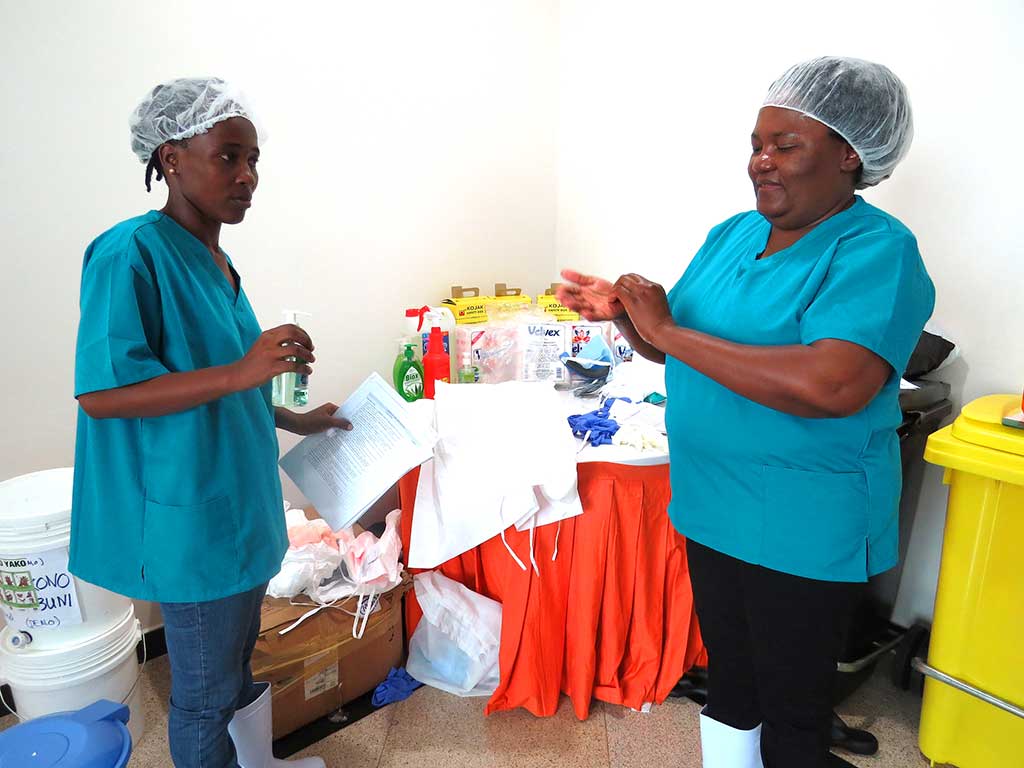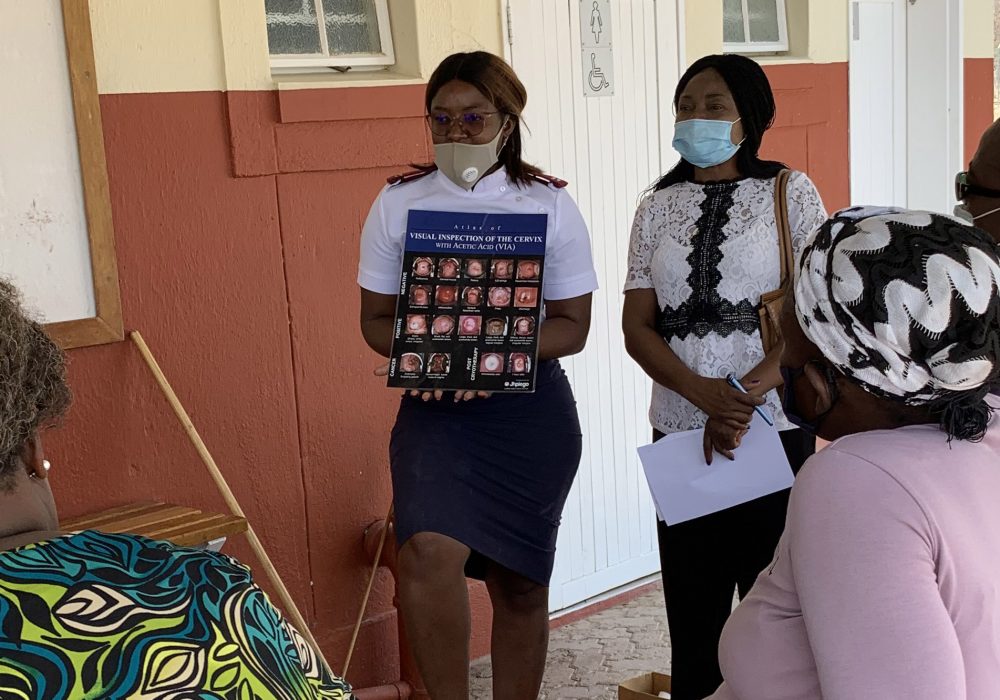Namibia



Country Contact
Taurayi Gwande, Sr. Technical Advisor and Project Director
Tel. +264 814815205
Jhpiego Namibia
No. 3A South Port
Windhoek, Namibia
Current and Recent Donors
CDC
Health Resources and Systems Administration
USAID
Reaching the most vulnerable and at-risk since 2009.
- Through the ACHIEVE project, Jhpiego successfully implemented DREAMS (Determined, Resilient, Empowered, AIDS-free, Mentored and Safe) initiatives in 21 health facilities across four districts in the north of Namibia. As a result, more than 54,000 adolescent girls and young women were reached with standardized, evidence-based interventions to promote the adoption of HIV prevention behaviors and service uptake.
- ACHIEVE also strengthened the capacity of two local partners (Catholic AIDS Action and Star for Life) to lead and sustain HIV prevention initiatives among adolescent girls and young women. This was achieved through training, coaching and mentoring on DREAMS program implementation and monitoring and evaluation, as well as technical capacity building in gender-based violence and other areas.
- Under the RISE project, Jhpiego conducted a social media campaign with partner organization AIfluence to learn about sentiments regarding COVID-19 vaccination and to support the Ministry of Health and Social Services (MOHSS) to design responses that encourage people to get vaccinated and support protection for all Namibians. RISE worked with the MOHSS to develop and launch the MOHSS COVID-19 website to ensure public access to accurate information about COVID-19.
- Under the HW21 project, Jhpiego collaborated with the MOHSS on the development of a National Cervical Cancer Elimination Strategic Plan, National Cervical Cancer Prevention Program Awareness and Demand Generation Strategy, and National Quality Strategy for Cervical Cancer Prevention, and has advised the MOHSS on their implementation, through activities such as training of trainers for cervical cancer screening.
Our Technical Areas in Namibia
Our Work in Namibia
Maximizing Options to Advance Informed Choice for HIV Prevention (MOSAIC)
Under this global project, led by FHI360 and funded by the U.S. Agency for International Development (USAID), Jhpiego is leading project implementation in Namibia. The goal of the MOSAIC project is to ensure that individuals, especially women, can protect themselves from acquiring HIV by accelerating introduction and scale-up of new biomedical prevention products, and by expediting availability, acceptance, uptake and impact of these products.
The people we serve
Country Contact
Taurayi Gwande, Sr. Technical Advisor and Project Director
Tel. +264 814815205
Jhpiego Namibia
No. 3A South Port
Windhoek, Namibia
Current and Recent Donors
CDC
Health Resources and Systems Administration
USAID




